Epictetus
Epictetus was a Greek Stoic philosopher. He was born a slave at Hierapolis, Phrygia (present day Pamukkale, Turkey) and lived in Rome until his banishment, when he went to Nicopolis in northwestern Greece for the rest of his life. His teachings were written down and published by his pupil Arrian in his Discourses and Enchiridion.
Epictetus taught that philosophy is a way of life and not just a theoretical discipline. To Epictetus, all external events are beyond our control; we should accept whatever happens calmly and dispassionately. However, individuals are responsible for their own actions, which they can examine and control through rigorous self-discipline.
Epictetus was born around AD 50, presumably at Hierapolis, Phrygia. The name his parents gave him is unknown; the word epíktētos (ἐπίκτητος) in Greek simply means "gained" or "acquired";the Greek philosopher Plato, in his Laws, used the term to mean property that is "added to one's hereditary property". He spent his youth as a slave in Rome to Epaphroditos, a wealthy freedman and secretary to Nero.
Early in life, Epictetus acquired a passion for philosophy and, with the permission of his wealthy enslaver, he studied Stoic philosophy under Musonius Rufus, Becoming more educated in this way raised his social status. At some point, he became disabled. Origen wrote that this was because his leg had been deliberately broken by his enslaver. Simplicius, in contrast, wrote that he had simply been disabled from childhood.
Epictetus obtained his freedom sometime after the death of Nero in AD 68, and he began to teach philosophy in Rome. Around AD 93, when Emperor Domitian banished all philosophers from the city, Epictetus moved to Nicopolis in Epirus, Greece, where he founded a school of philosophy.
His most famous pupil, Arrian, studied under him as a young man (around AD 108) and claimed to have written his famous Discourses based on the notes he took on Epictetus’s lectures. Arrian argued that his Discourses should be considered comparable to the Socratic literature. Arrian described Epictetus as a powerful speaker who could "induce his listener to feel just what Epictetus wanted him to feel." Many eminent figures sought conversations with him. Emperor Hadrian was friendly with him, and may have heard him speak at his school in Nicopolis.
He lived a life of great simplicity, with few possessions. He lived alone for a long time, but in his old age, he adopted a friend's child who otherwise would have been left to die and raised him with the aid of a woman. It is unclear whether Epictetus and she were married. He died sometime around AD 135. After his death, according to Lucian, his oil lamp was purchased by an admirer for 3,000 drachmae.
Books by Epictetus

The Enchiridion
The Enchiridion or Handbook of Epictetus (Ancient Greek: Ἐγχειρίδιον Ἐπικτήτου, Enkheirídion Epiktḗtou) is a short manual of Stoic ethical advice compiled by Arrian, a 2nd-century disciple of the Greek philosopher Epictetus. Although the content is m...
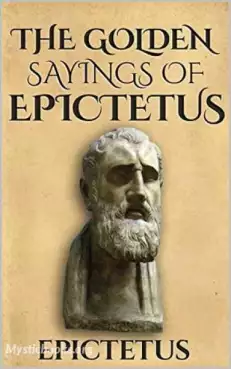
The Golden Sayings of Epictetus
Aphorisms from the Stoic Greek.
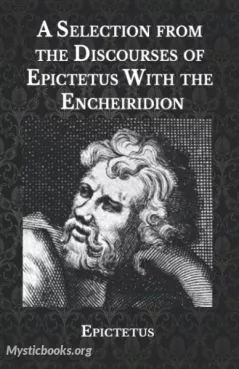
A Selection from the Discourses of Epictetus with the Encheiridion
It includes a selection of the philosopher's Discourses, which are a series of informal lectures and conversations, as well as his famous Encheiridion, or "Handbook." Epictetus was a Stoic philosopher who lived in the 1st century CE and is known for...
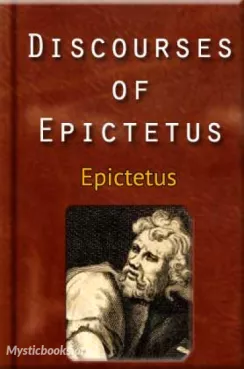
Discourses of Epictetus
In this, author presents a profound and practical guide to living a virtuous and meaningful life. Drawing from his Stoic philosophy, Epictetus offers invaluable insights into the nature of existence, human behavior, and the pursuit of happiness. Wit...
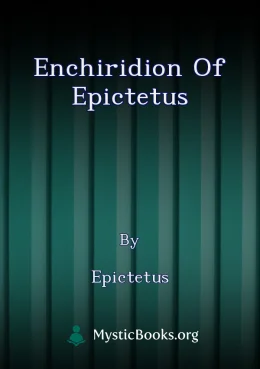
Enchiridion of Epictetus
Epictetus (Greek: Επίκτητος; c.55–c.135) was a Greek Stoic philosopher. The name given by his parents, if one was given, is not known - the word epiktetos in Greek simply means "acquired."Epictetus spent his youth as a slave in Rome to Epaphroditos,...
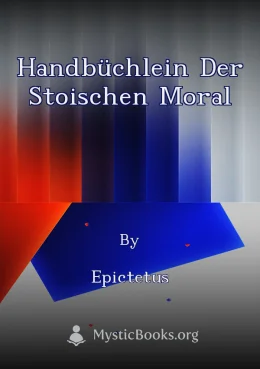
Handbüchlein der stoischen Moral
Encheiridion, stoische Regeln für ein zufriedenes Leben. Knapp und ausgezeichnet. Geschrieben von Epiktet (ca. 50-138). Übersetzung durch Carl Conz von 1864. (Summary by redaer)This reading is in German.
